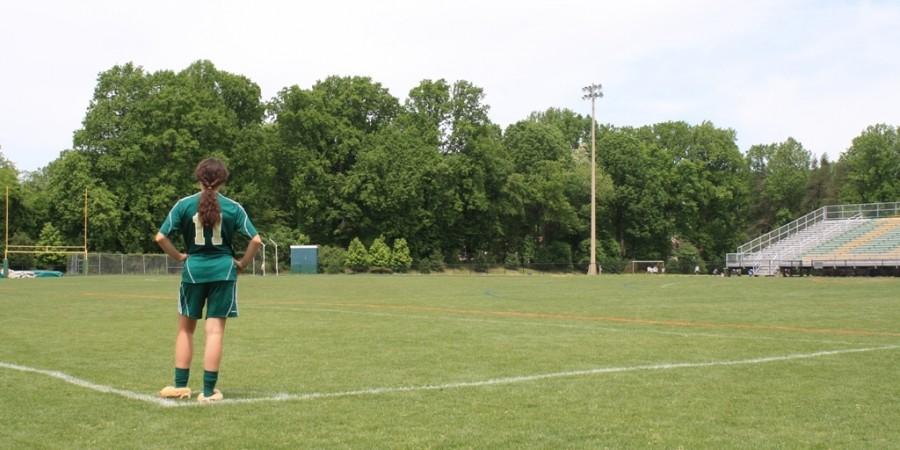Game cancellations and muddy fields may be no more as Langley boosters
work to raise funds to install turf fields on both the football and practice fields.
“We would love to have a turf field, and it is one of our goals to have one for games, practices and physical education,” said Mr. Geoff Noto, Director of Student Activities.
While considering the addition of turf fields to Langley’s grounds, boosters and administrators discuss turf’s environmental impacts, as well as the initial costs and maintenance.
As amazing as these fields sound, there are still many problems surrounding their possible installation—mainly financial issues.
“The reason why schools like Madison and Marshall have turf fields is because their booster clubs had help with their funding,” said Noto.
Vienna Youth Lacrosse contributed heavily to the construction of Madison’s fields, and Marshall received financial compensation because of all the Tyson’s Corner metro construction that is taking place around the school.
“I like playing on turf for practice, but not on the game field,” said freshman junior varsity soccer player Brady Alden.
The initial installation cost for a turf field may exceed $1 million. Budget problems associated with turf will be discussed in early May when the administration meets with the boosters. The solution may include a partnership between Langley and McLean or Great Falls Youth, which would help fund the fields in return for usage.
The upside to turf fields is that they don’t require cutting or fertilizer. However, they don’t absorb runoff, which could increase the amount of flooding that occurs. Also, unlike Bermuda grass fields, turf fails to produce oxygen or absorb carbon dioxide. Additionally, turf fields cannot absorb blood, sweat or spit, so if cleaned improperly, they could become a site where students could contract staph infection or MRSA. Turf fields also absorb heat, creating a field that is hotter than a normal grass field. The maintenance for turf fields involves replacing them every few years to avoid a build-up of recycled tire beads.
“The ball tends to bounce too much on the turf field,” said freshman junior varsity soccer player Oliver Zufall.
Still, many students view turf fields as an improvement from grass fields.
“I would like to have a turf field so that there fewer game cancellations, and the fields are nicer to play on,” said sophomore Nicole Dunne, a varsity lacrosse player. Turf fields would create a flatter playing surface, and would withstand weather better than Bermuda grass fields. The fields would not be an immediate addition to Langley, but if approved would be installed in the next few years.


